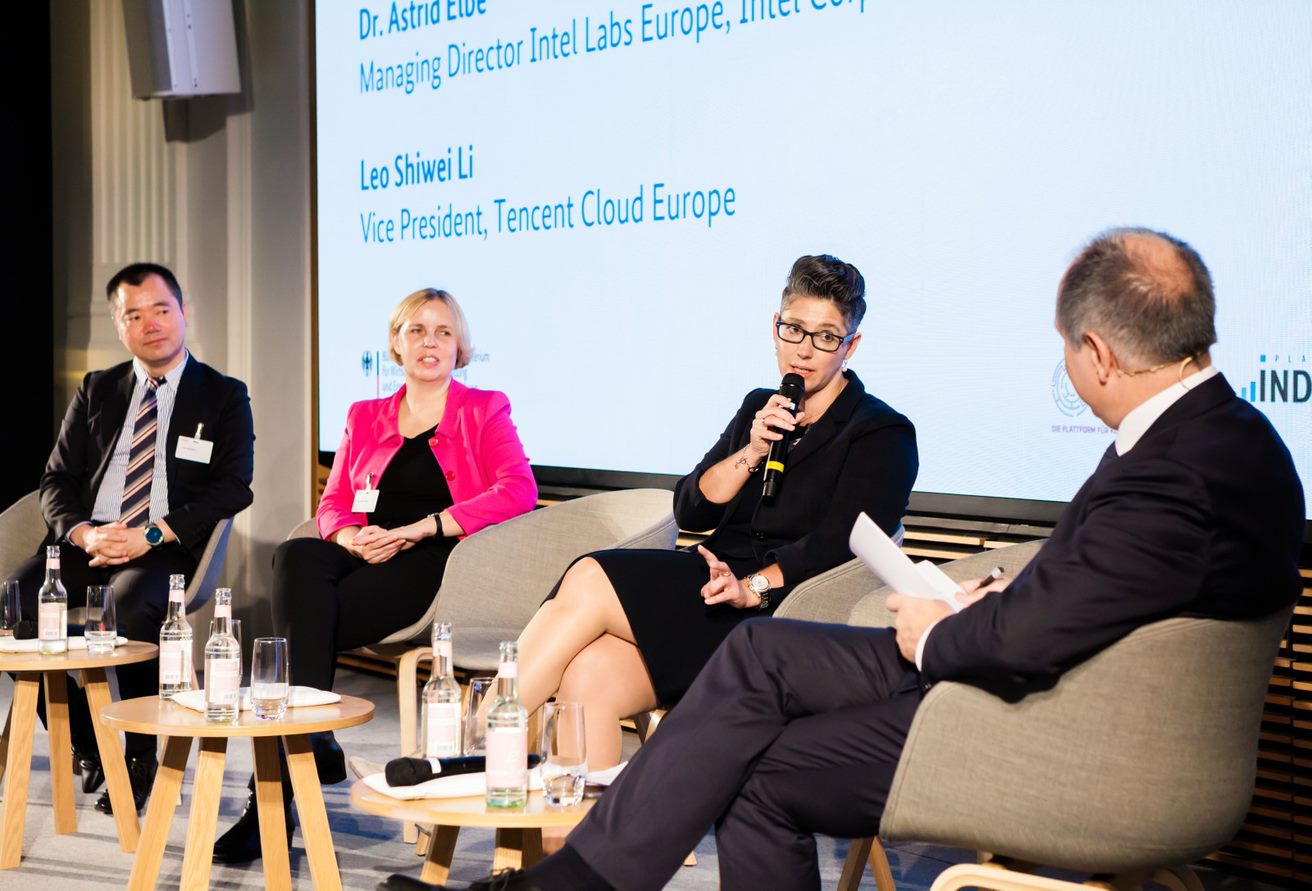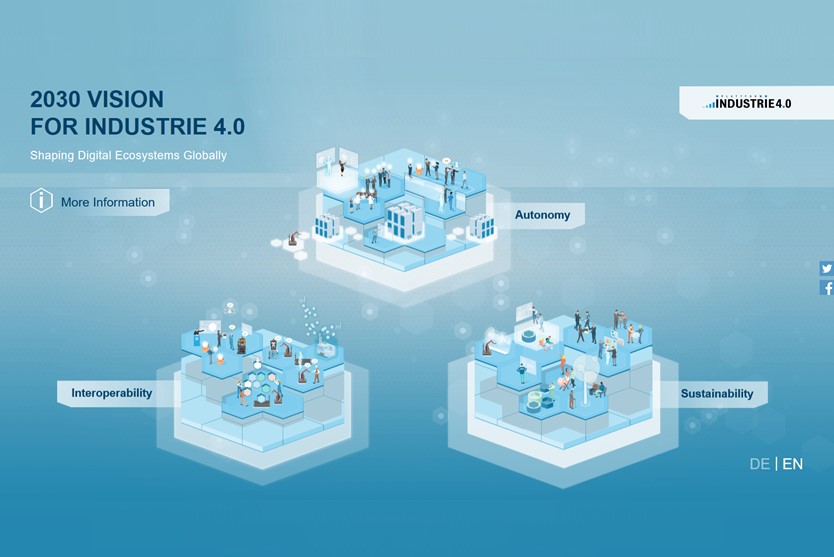
Panel on the topic "On the way to a globally networked platform economy", f.l. Leo Shiwei Li, Vice President, Tencent Cloud Europe, Dr. Astrid Elbe, Managing Director Intel Labs Europe, Intel Corporation and Nadine Despineux, President Digital Service Solutions, KraussMaffei Technologies GmbH - moderated by Frank Riemensperger, CEO, Accenture DACH
© BMWi, Anja Blumentritt
The message of the event was clear: networking, discussion and teamwork are of key importance. Increasingly, German industry needs to regard itself as a value creation network. This is vital for the country to maintain a leading role in a data-driven platform economy in the face of international competition. Two panel discussions and four workshops provided participants with an opportunity to discuss challenges and solutions in the transition towards digitalisation and new business models.
Breaking down barriers
The classic silo mentality and competitive thinking are still all too common features of industry. Digital business models, on the other hand, point towards a blurring of business boundaries. Competitive models are in a state of profound transition. Platform-style businesses are increasingly important, as shown in a study commissioned by the Federal Ministry for Economic Affairs and Energy in 2019. The so-called “ecosystems” in which value is created are becoming just as important as the product itself. Nowadays, it is not the individual company in focus, but the benefits for the entire network. Companies have to find their place in these networks, in accordance with their respective business models. There is no one-size-fits-all answer to this question. What is clear, however, is that industrial networking is already technically possible. The only barriers left are the ones in people’s heads – and these are the ones that we need to break down.
Partnerships and opportunities
Companies can’t manage it all on their own – especially in the small to medium-size enterprise sector. It is all the more important to call in external expertise and establish good working partnerships. The usability of existing knowledge and databases must be harnessed, enabling products and services to be developed further.
The right regulatory framework could offer an opportunity here – provided the EU’s competences are used in order to establish framework conditions for international competition.
All about data?
Data play a significant role in the networking of a platform economy – as long as they are used properly. In the best case scenario, the usage of data generates benefits for the overall network. This enables the improvement of existing products and the emergence of new digital services, thus generating new value.
After all, data are but one ingredient in the establishment of digital business models. The internal transition within the company is also essential. This doesn’t mean getting rid of the “old” business model completely, however. What it does mean, is understanding the possibilities generated by digital solutions, recognising the benefits and deploying the solutions in a way that makes sense. In this way, new business models can emerge alongside the old ones. Plattform Industrie 4.0’s Working Group 6 present examples of how this works in practice in their recent publication “Ambidexterity: Product Development in the NEW”.
Digital business models look different, depending on the type of value creation network within which they emerge. Opportunities and challenges therefore develop in different ways. A summary of these opportunities, challenges, advice and guidance for businesses getting to grips with their digital transformation is provided by the Working Group 6 through an analysis of 22 practice examples.
The event was hosted by the German Federal Ministry of Economic Affairs and Energy, in cooperation with the Plattform Industrie 4.0 and the Plattform Lernende Systeme, Germany’s platform for artificial intelligence, sponsored by the Federal Ministry for Education and Research.



